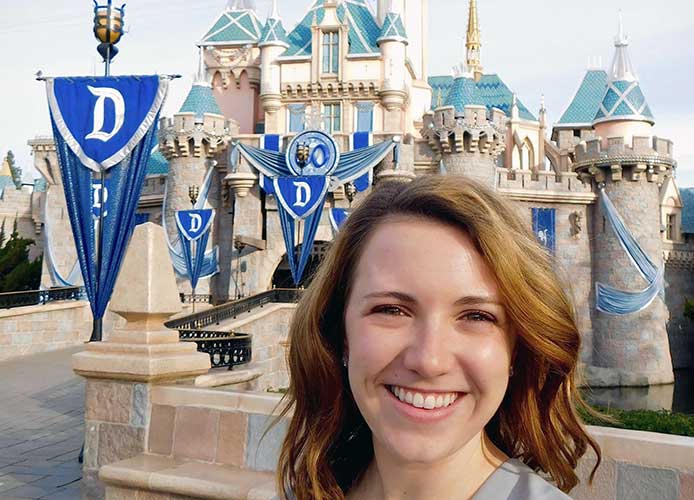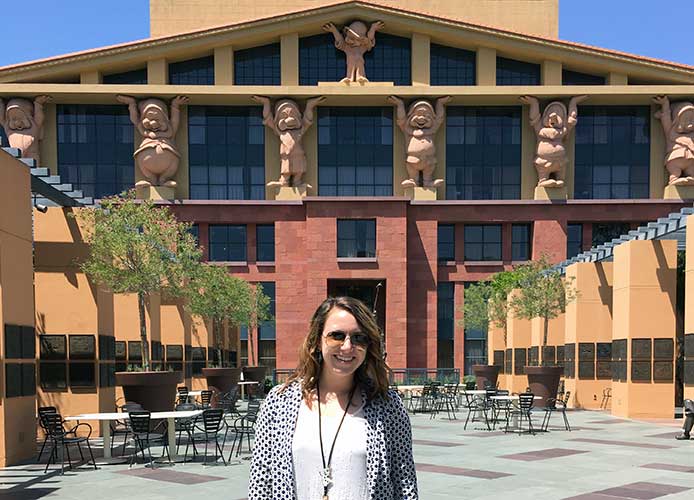Co-op changes a life
What does it mean to co-op? Purdue’s Office of Professional Practice offers a five-session co-op program where students gain approximately 20-22 months of paid professional experience while in school, alternating on-campus semesters taking classes with off-campus semesters working for an employer. It takes longer to graduate, but co-op students graduate with real-world job experience.
As a co-op student, IE senior Anneliese Smith worked two semesters for the Walt Disney World Resort (Orlando, FL), and one semester each for Disneyland Resort (Anaheim, CA), General Motors Corporation’s Springhill Powertrain Plant (Springhill, TN) and Powertrain Headquarters (Pontiac, MI). Each job equaled a semester of classes, so she’s spent two-and-a-half years of her college career working. It lengthened the time she’s been at Purdue, but benefitted her by giving her on-the-job experience – for which she was paid.
"The opportunities you get as a co-op are invaluable," says Smith. "Since co-ops are basically longer repeated internships, the co-op students receive projects with much higher levels of responsibilities. I had the opportunity to save companies hundreds of thousands of dollars, work with executive levels, and handle multiple projects from their inception to completion while on my co-op rotations. You just don't get those opportunities in the 2.5 months of a summer internship."
Smith says she's grown both academically and personally as a co-op student. She's grown academically because she saw the usefulness of what she’d learned in class. "I found myself being much more attentive in class because I knew that what I was learning was important and applicable for my future career," she explains. "It was also easier for me to understand certain concepts in class because I had seen the concepts first-hand during my co-op work rotations. I had real-world examples to back up the concepts."
She's very enthusiastic about how co-op helped her grow personally. "There is something about hands-on learning and learning from mistakes that just sticks with you and pushes you to learn faster and challenge yourself more," she says. "I developed exponentially on each of my work rotations. I learned how to interact professionally with all levels and ages. I also learned that I loved the field of industrial engineering!"
Smith also enjoyed living in other states for each of her co-op positions. "Although it was difficult moving to new areas, I experienced so many different cultures and had the opportunity to gauge where I might want to live after I graduate," she says.
Some of the challenges included being flexible in living situations. To co-op, she had to move away from and back to Purdue almost every six months. Each time she returned to campus she had to adjust to a new, usually younger, group of fellow students. "I overcame this challenge by being a part of the Institute of Industrial and Systems Engineers (IISE)," she says. "The family atmosphere of the club quickly acquainted me with younger students that were in my classes."
For students considering co-oping, Smith says the experiences and opportunities gained far outweigh the disadvantages of breaking away from the normal four-year academic schedule.
"I am now confident that I can accomplish great things in industry because I built a strong foundation through the work I completed, the mentors I gained, and the opportunities I took advantage of while co-oping," says Smith.
Writer: DeEtte Starr, starrd@purdue.edu


